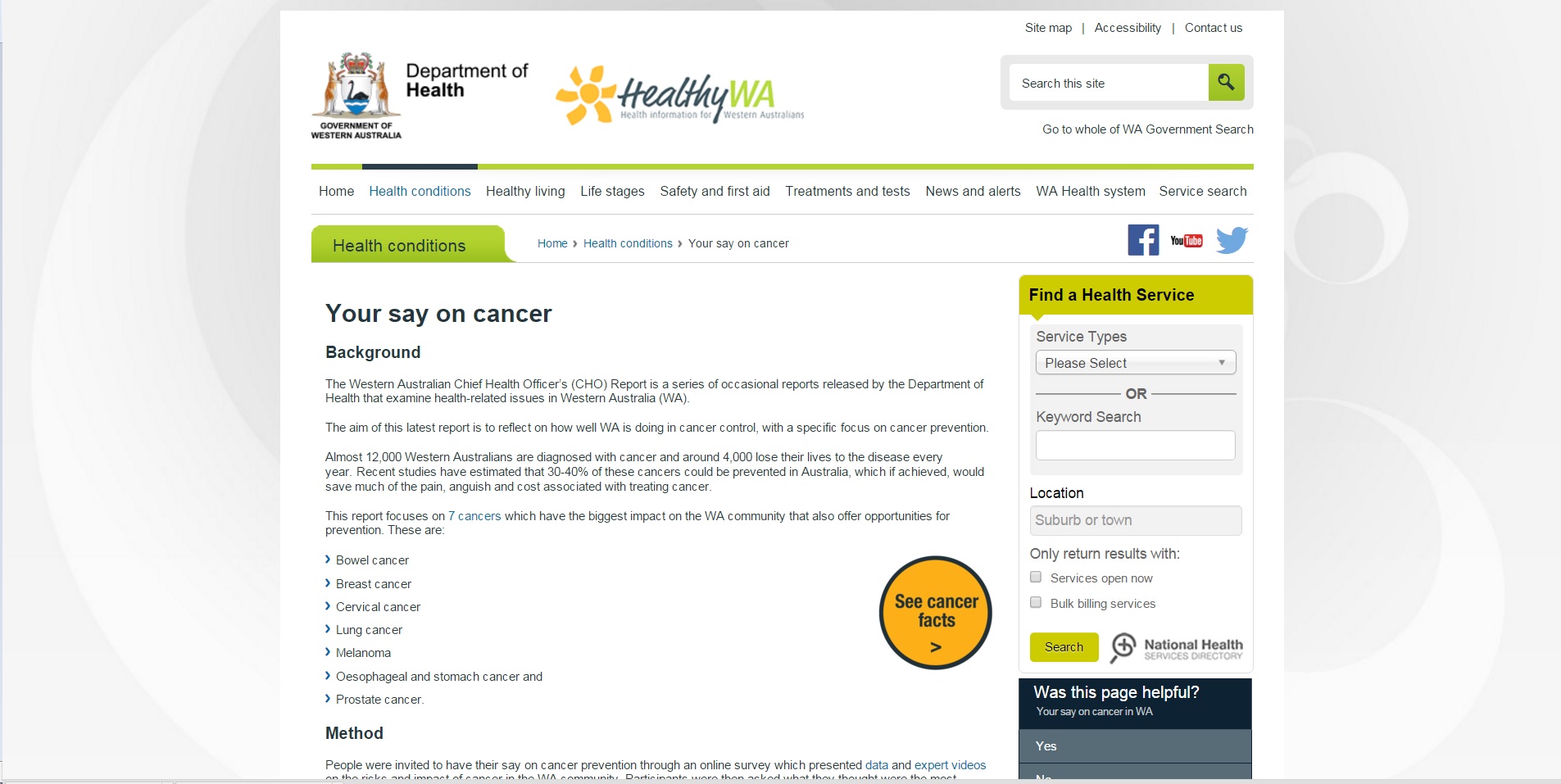
A recent state-wide survey shows that many people don’t know that 30 – 40% of cancer cases in WA are preventable. With almost 12, 000 Western Australians diagnosed with cancer every year, this is both shocking and heartbreaking.
This information comes from a report recently released by the Department of Health entitled Priorities and Preferences for Cancer Control in Western Australia
This report summarises responses to an online public consultation conducted last year on the seven cancers which have the greatest impact on the WA community and greatest opportunity for prevention: bowel, breast, cervical, lung, melanoma, prostate and oesophageal/stomach cancer. The report has revealed that a third of participants were unaware that much could be done to prevent cancer. In particular, many people were not aware of the dietary risk factors for bowel cancer and that cervical cancer is almost entirely preventable.
A poor understanding of the preventability of cancer is not necessarily surprising as historically, much of the discussion about cancer in the community has focused on treatment, sometimes to the detriment of prevention messages. However, it does highlight the potential for reducing the pain, anguish and cost associated with treating cancer.
The value of this new report is that, in seeking out community views on priorities and preferences for cancer control it has identified some clear areas for increased action in the immediate future, including: Increasing the number of Western Australians participating in the National Bowel Cancer Screening Program; Strengthening health promotion messages around recommended red meat intake; reducing processed meat consumption; reducing alcohol consumption; and reducing salt intake, as well as links between obesity and cancer risk; Working to raise the profile of cancer prevention and early detection; and Building on gains made in tackling harm caused by smoking, exposure to ultra violet radiation and asbestos, as well as exploring new and innovative programs to reach vulnerable groups and address emerging issues.
This is the first time the Chief Health Officer of WA has asked the community for feedback in a report and the first time (to my knowledge) an online forum has been used to gather community opinion on cancer prevention in WA. As a co-author on the report it was a privilege to bear witness to the frank, open and creative ideas for cancer prevention from our consultation participants. We are very grateful for their input and the time they devoted to answering our questions.
The report was prepared in collaboration with a number of agencies including the Health Consumers’ Council WA, Cancer Council WA, Public Health Advocacy Institute of WA, Curtin University and WA Clinical Oncology Group.
To read more about the findings of the consultation and how the Department of Health is responding, you can access the full report here:
As a project team we also had a lot of fun planning and putting together a consumer website with a range of supporting material including a summary of the report findings, some innovative infographics of cancer data, and expert videos.
Check out the website for yourselves here:
www.healthywa.wa.gov.au/yoursayoncancerwa
Guest Blogger: Dr Jennifer Girschik




